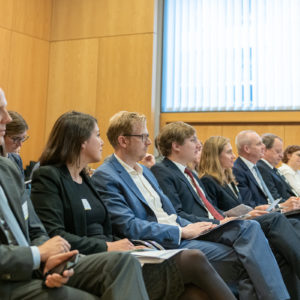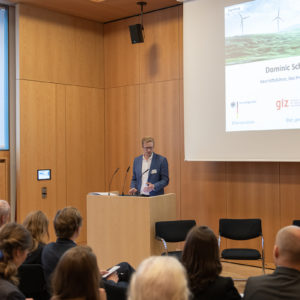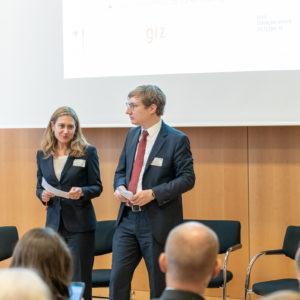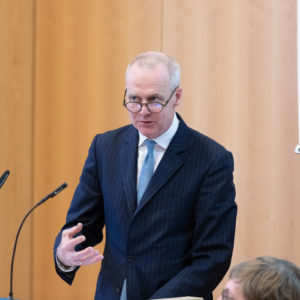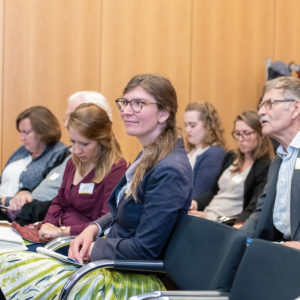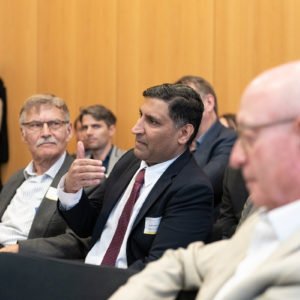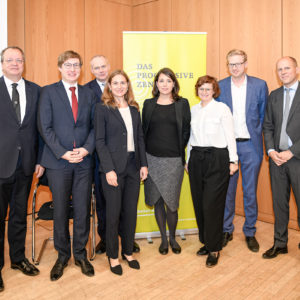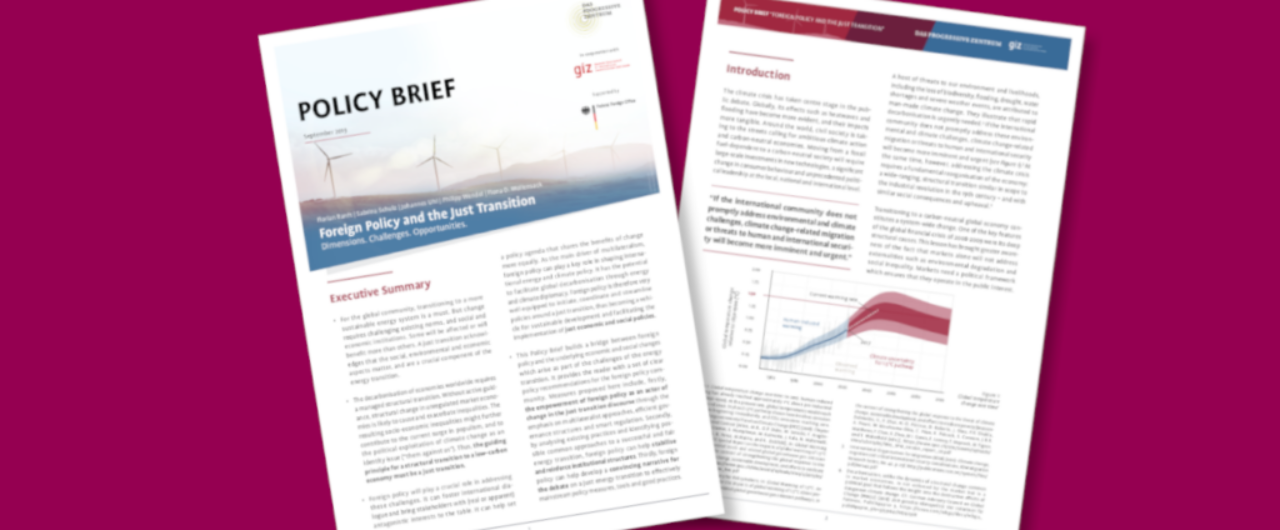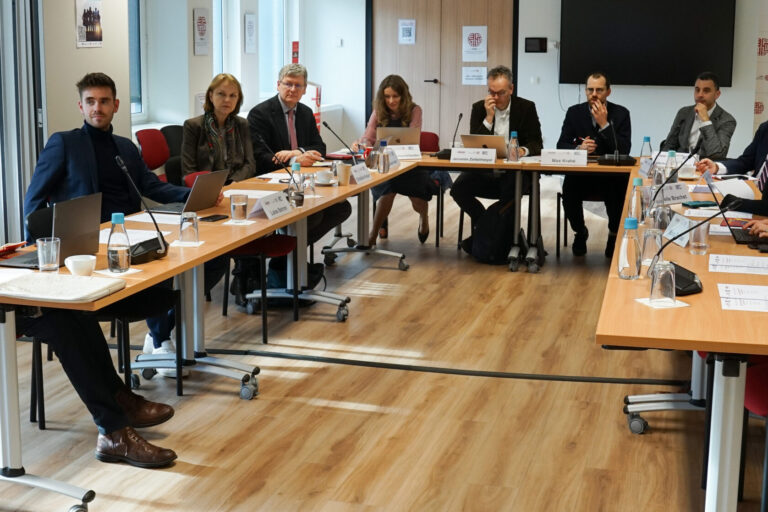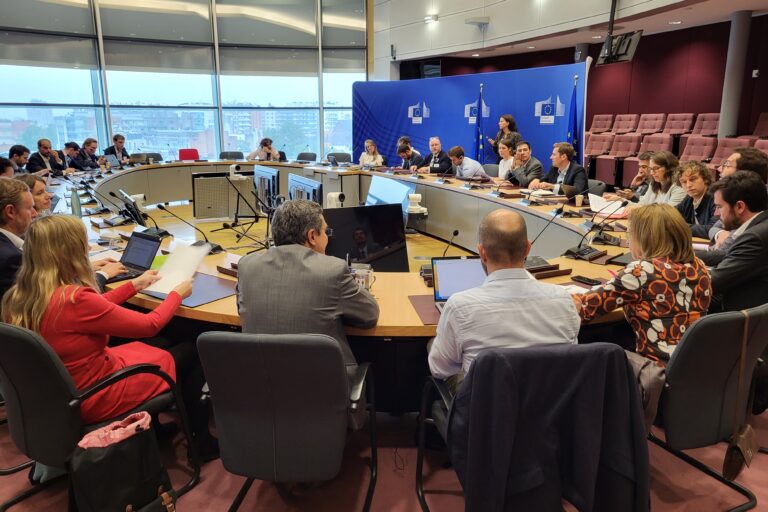The new policy brief by the Deutsche Gesellschaft für Internationale Zusammenarbeit (GIZ) & Das Progressive Zentrum (DPZ), on behalf of the German Federal Foreign Office, emphasises the need for a Just Transition and a greater role for the foreign policy community in fighting climate change. The paper was presented at the German Foreign Office on 24 September 2019.
Berlin, 24 September 2019 – Public diplomacy needs to step up to the responsibility of tackling the climate crisis. This is especially important as combating climate change affects a wide range of society, making a just design of the transformation all the more necessary. A value-based and multilateral foreign policy approach can develop a comprehensive response to the global climate crisis. A new policy brief stresses that a Just Transition would be the most suitable framework to implement a system transformation towards decarbonised economies. It would also address the challenges brought forward by economic regional inequalities and the rising support for populist parties, and in turn, make economies and societies more resilient against the consequences of the climate crisis.
The new policy brief by the Deutsche Gesellschaft für Internationale Zusammenarbeit (GIZ) and the Berlin-based think tank The Progressive Centre (DPZ) begins from the fact that „climate change does not stop at borders“, says Johannes Uhl, co-author of the policy brief and Project Director at GIZ. „Foreign policy needs to develop strategies of a managed system transformation that addresses the consequences of the climate crisis.“
The authors recommend foreign policy actors to:
- embrace their role as climate change fighters,
- analyse existing best practices and identify possible common approaches to a successful and fair energy transition,
- develop a convincing narrative for the debate by relying on the Just Transition framework,
- thereby going beyond traditional means of diplomacy by directly integrating sub-national administrations and civil society organisations in their deliberations.
„According to our analysis, Just Transition is the most suitable framework to guarantee social stability while transforming the economy“, says Dr Sabrina Schulz, co-author and Policy Fellow at DPZ. „The principle provides active guidance for governments that can lead their economies to sustainable growth and making them more resilient against the consequences of the climate crisis. Next to these advantages it also has the positive effect of countering the global right-wing surge as social stability has proven to be the most effective recipe.“
The policy paper further stresses that the Just Transition framework might soften the geopolitical consequences of the energy transition. Through managing the transition to a low-carbon economy in a social way, the coal, oil and gas producing countries that do not adopt the framework will experience a relative loss of influence and power at the international stage. The biggest challenge for climate and energy diplomacy in tackling the climate crisis is to build trust and platforms for dialogue with states who are most affected by decarbonisation.
“The public diplomacy agenda could showcase the tangible (co-)benefits of a low-carbon economy: improved health due to less air pollution, economic stimulation due to innovation, investment and employment as well as a more equitable distribution of the benefits and burdens of the transition within countries”, says co-author and DPZ’s Head of the Structural Change programme Dr Florian Ranft.
Managing the transition requires a deeper engagement with citizens, businesses, local and regional leaders and civil society. This means that foreign policy will have to become bolder and go beyond merely workshop and conference diplomacy and instead also give citizens a voice in how to address the impact of structural change.
Background
Deutsche Gesellschaft für Internationale Zusammenarbeit (GIZ) is a globally leading service provider in the field of international cooperation for sustainable development and international education work, with more than 50 years of experience in a wide variety of areas, including economic development and employment promotion, energy and the environment, and peace and security. The diverse expertise of this federal enterprise is in demand around the globe – from the German Government, European Union institutions, the UN, the private sector and governments of other countries. GIZ works with businesses, civil society actors and research institutions, fostering successful interaction between development policy and other policy fields and areas of activity.
The Progressive Centre (Das Progressive Zentrum, DPZ) is an independent, non-profit think tank founded in 2007, devoted to establishing new networks of progressive actors from different backgrounds and promoting active and effective policies for economic and social progress. It involves especially next generation German and European innovative thinkers and decision-makers in the debates. Its thematic priorities are situated within the three programmes “Future of Democracy”, “Structural Change” and “International Relations”, with a particular focus on European integration and the transatlantic partnership. The organisation is based in Berlin and also operates in many European countries (including France, Poland and Great Britain) as well as in the United States.
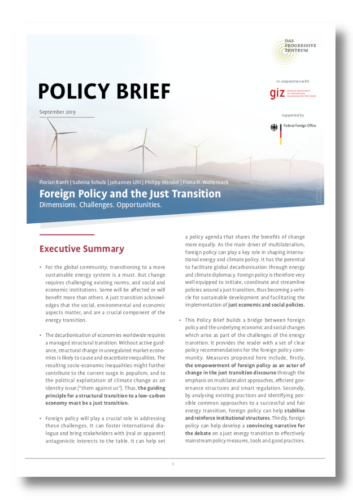
Photos of the Launch Event
On 24 September 2019 GIZ and DPZ presented the policy brief at the German Foreign Office. Prof. R. Andreas Kraemer, Founder of the Ecologic Institute & Adjunct Professor at Duke University, Ambassador Boris Ruge, Vice-President at the Munich Security Conference, and co-author Dr Sabrina Schulz, Policy Fellow at Das Progressive Zentrum, discussed the results.
